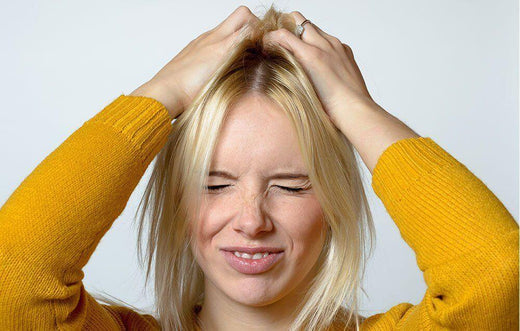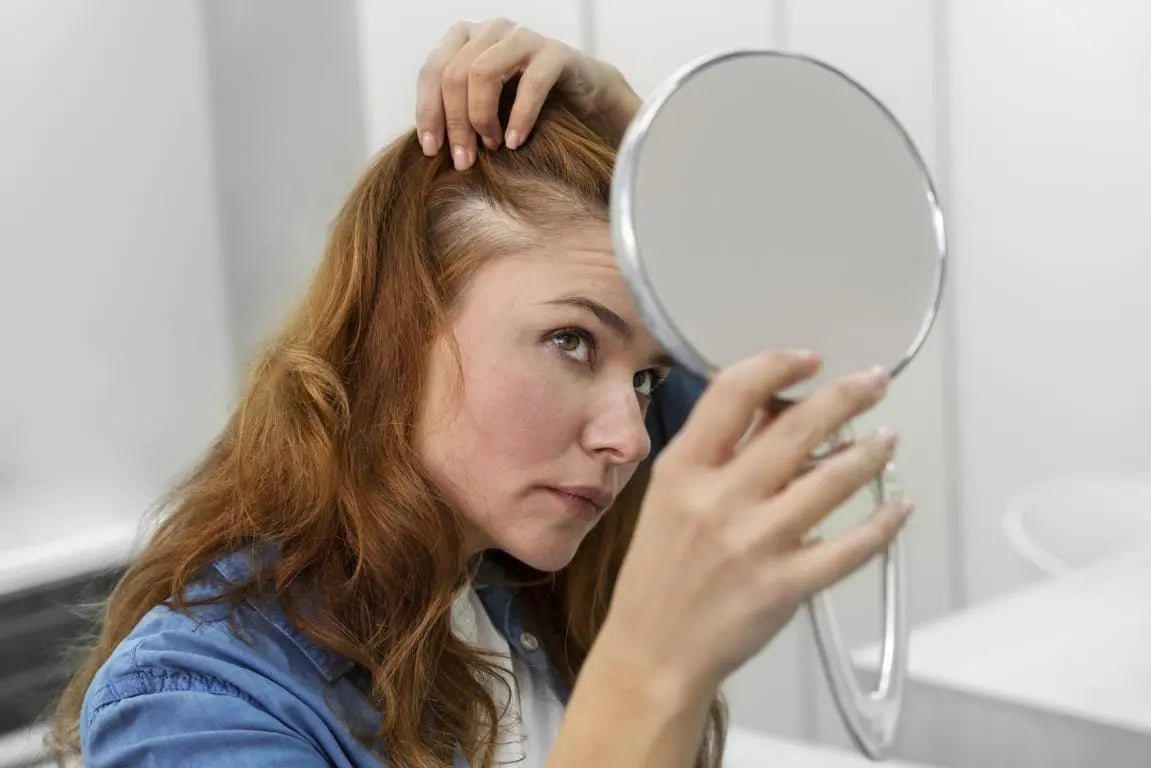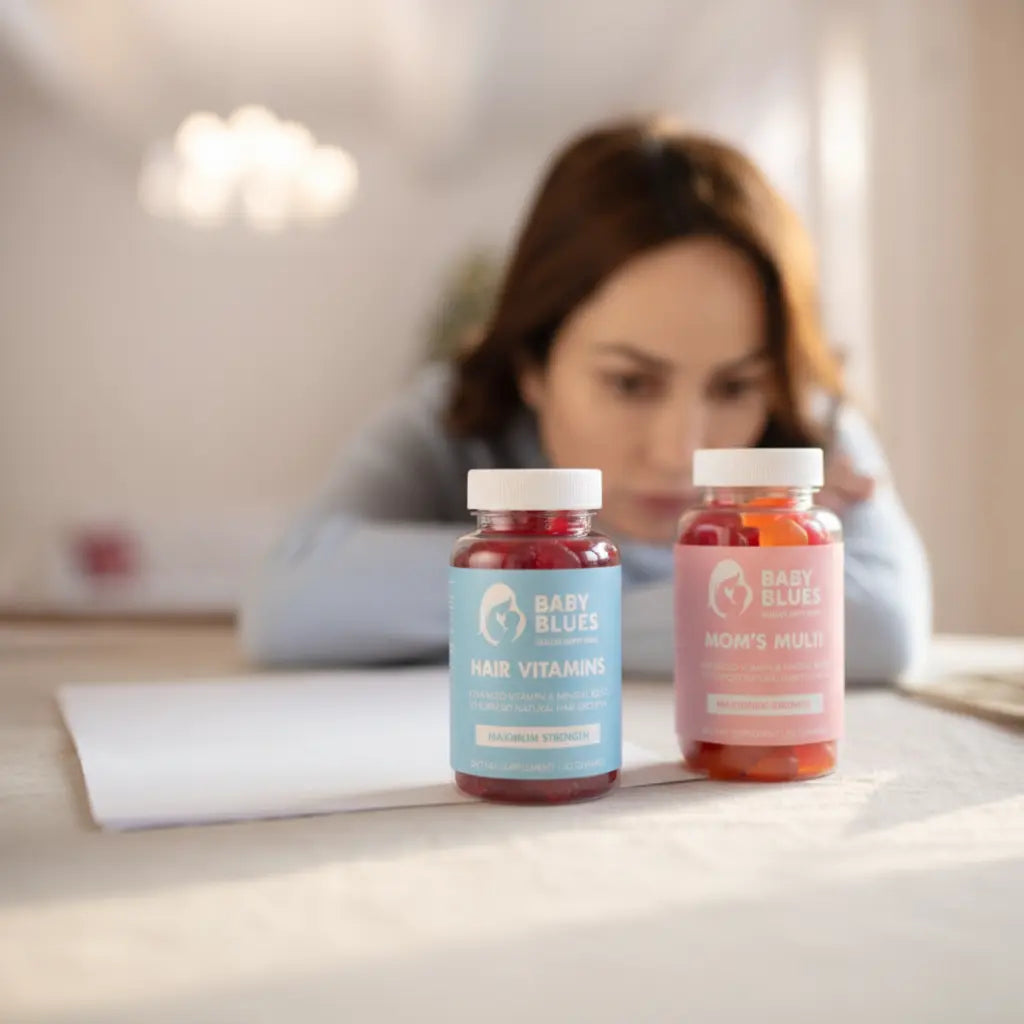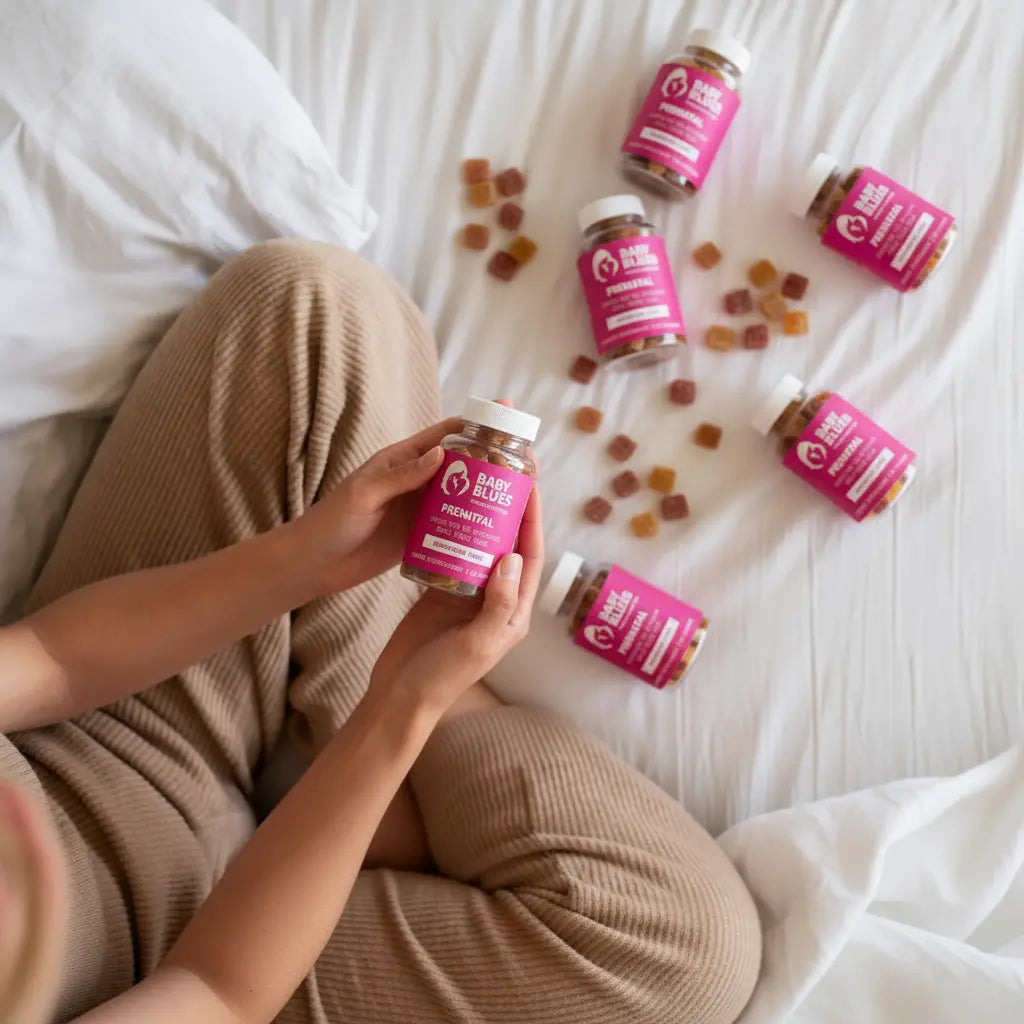Why is my Scalp Itchy Postpartum?
Postpartum Hair and Scalp Changes
Understanding the transformations your body undergoes after childbirth.
After childbirth, many women experience significant changes in their hair and scalp. These transformations are largely due to the hormonal fluctuations that occur during pregnancy and the postpartum period. One of the most common changes is postpartum hair loss, which affects up to 92% of women. This condition is characterized by excessive hair shedding, particularly around three to four months postpartum. You might notice more hair in your brush or shower drain, and your once-thick mane may start to feel a bit thinner.
In addition to hair loss, you may also see changes in your hair texture. Some women find their hair becomes curlier, straighter, thicker, or finer. These changes can be surprising and sometimes frustrating, but they are a normal part of the postpartum journey.
Another common issue is postpartum itchy scalp. This can be caused by a variety of factors, including hormonal changes, dehydration, and physical and emotional stress. Your scalp may become more oily, leading to flaking and scaling, and can be accompanied by itchiness, pain, and even inflammation. Understanding these changes can help you better manage your hair and scalp health during this time.
Postpartum itchy scalp ... it's a thing.
I’ve said it before and I’ll say it here again… Hormones are wild
So many body and skin changes can occur while we are pregnant: Your freckles can darken, your skin can look more glowy, can’t forget the fuller pregnancy hair (it’s a personal favorite), and then there’s my least liked …the melasma-moustache.
Additionally, hormonal changes can lead to scalp itchiness, especially postpartum, as the scalp becomes more sensitive and prone to dryness.
Yup, Hormones are wild.
Then comes postpartum hair loss, or the 4th trimester as my OB refers to it.
*Trigger warning* An unenjoyable new mom side effect:
If you aren't aware by now, postpartum hair loss is to be expected. A majority of women experience it.
Typically around 3 months postpartum you'll notice your hair is looking... more limp; correction -you'll likely notice you're leaving trails of hair before you find yourself analyzing your hairline in the mirror .
Again.. this is expected and can be minimized by postpartum hair vitamins, a shapelier new cut, being gentle on your strands, volumizing shampoos, and a diet focused on iron, protein, and lots of healthy fruits and veggies.

Causes of Postpartum Itchy Scalp
Exploring the reasons behind the itch.
Postpartum itchy scalp is a common issue that many new mothers face, and it can be quite uncomfortable. One of the primary culprits is the hormonal changes that occur during pregnancy and after childbirth. These hormonal shifts can cause your scalp to become engorged with liquids, leading to a tingling, painful sensation and severe itchiness. The increased blood volume and swelling of blood vessels in the scalp can connect to nerve endings, making the itchiness even more pronounced.
Additionally, the hormonal fluctuations can lead to an increase in natural oils on your scalp, resulting in a greasy scalp. This excess oil can clog hair follicles and create an environment where yeast can thrive, leading to further irritation and itchiness.
Other factors that can contribute to postpartum itchy scalp include dehydration, physical and emotional stress, and changes in your skin and scalp. The scalp is particularly susceptible to postpartum itchiness due to its high concentration of nerves, blood vessels, and sebaceous glands. By understanding the causes of postpartum itchy scalp, you can identify effective strategies to alleviate the discomfort.
Can't shake the scalp itch:
You may have noticed that your scalp started to itch during pregnancy or postpartum.
With hormone levels raised our scalps become engorged with liquids and this can cause a tingling, painful sensation in the nerve along with severe itchiness.
The American Pregnancy Association released findings that a pregnant women’s blood volume increases by up to 50% during pregnancy.
These swelling blood vessels are connected to nerve endings on our head.
If you experienced a sensitive scalp during pregnancy (or after) this could definitely be why.
Hormonal changes can also lead to dandruff and inflammation, which may require treatment with an anti dandruff shampoo.

Greasy + Itchy Scalp
I’ve never learned more about the oil on my scalp, than after I delivered and started experiencing postpartum hair loss.
You remember my mantra about hormones right? Well, another gift they give us during pregnancy is an increase in the progesterone hormone.
This increase causes more natural oils to be produced by our skin.
Initially I though ok total win because these also cause our skin to look so much brighter in pregnancy.
Beautiful science backing that notion that my glowy pregnancy skin was not just me sweating constantly from carrying both my babies during the summer months.
So while your face has that brightened affect**the best skin care still hasn’t replicated (thanks to natural oils in the skin), your scalp on the other hand has sebum.
Sebum is the oil produced on our scalps and the increase in hormones can cause it to increase as well.
This can lead to all sorts of problems like postpartum oily scalp and hair (I’ve written an entire blog about this because it is one of the most disturbing things that happened to me postpartum).
 Those with greasy scalps postpartum are also more prone to sensitivities that include itch, and even some pain, as the hair shaft can become plugged.
Those with greasy scalps postpartum are also more prone to sensitivities that include itch, and even some pain, as the hair shaft can become plugged.
For individuals with fine hair, it is important to apply shampoo primarily at the roots and conditioner primarily at the ends to prevent the hair from feeling weighed down, particularly if the scalp is oily.
Unfortunately, greasy scalps can actually promote an overgrowth of yeast on your scalp. This can lead to further skin inflammation, redness, itchiness, and scaliness.
Get Sebum production under control with tea tree oil
 When sebum production is a bit out of control postpartum a dermatologist will typically recommend *trying a ph neutral shampoo,**investing in a scalp massager brush (*to remove build-up of old skin cells and products), and possibly the most difficult being the simplest …get your shower in MOM.
When sebum production is a bit out of control postpartum a dermatologist will typically recommend *trying a ph neutral shampoo,**investing in a scalp massager brush (*to remove build-up of old skin cells and products), and possibly the most difficult being the simplest …get your shower in MOM.
Even fresh from a shower I still felt oily with my second son, but the oil can build up even more pretty quickly, so don’t avoid it.
Sebum overproduction commonly seen after delivery, can cause greasy hair, thinning hair and eventual hair loss. Using scalp treatments can help manage sebum levels and promote hair growth.
Sebum underproduction, equally disturbing, can lead to dry, brittle hair, eventually resulting in hair loss.
What is commonly seen in postpartum is a lack of B vitamins that can lead to oily, greasy hair and that itchy sensitive feeling. If you are breastfeeding this can decrease even more.
Stress is another factor that depletes the body of B vitamins and one of the first things stress does is lead to sebum over production.
Scalp sensitivities due to our ever changing postpartum hormones can be uncomfortable. Natural ingredients like rosemary, thyme, and aloe vera can help soothe the scalp and stimulate hair growth.
If your itchiness has led to scalp pain: you may want to avoid tight hairstyles, headbands, and hair dyes for a bit along- with any relaxer treatments like keratin or even heat styling, which might make the sensitivity more pronounced.
Make sure to get a shower in to alleviate oil build up and keep up your hair vitamins particularly those good B vitamins.
Treating an Itchy Scalp
Effective strategies to soothe the irritation.
Treating an itchy scalp requires a combination of self-care strategies and gentle hair care products.
One effective way to soothe an itchy scalp is to use a scalp treatment that contains tea tree oil, known for its antiseptic and anti-inflammatory properties. Massaging your scalp with a scalp massager can also help stimulate blood flow, increase hair growth, and distribute natural oils more evenly.
Using a dry scalp shampoo that is sulfate-free and gentle can help alleviate dry scalp issues. Additionally, applying a leave-in hair therapy that contains apple cider vinegar can help balance the pH of your scalp and create an alkaline environment that reduces itchiness. Avoiding tight hairstyles, headbands, and hair dyes can also help alleviate scalp pain and itchiness.

Up your vitamins! You want to support your hair and scalp going back to normalcy as fast as possible. Vitamins are crucial to supporting this at this vulnerable time. I love the Baby Blues postpartum hair vitamins for this and not only are they effective but they are delicious.

By incorporating these strategies into your hair care routine, you can effectively manage postpartum itchy scalp and promote healthy hair growth.
Remember, taking care of your scalp is just as important as taking care of your hair, especially during the postpartum period.





